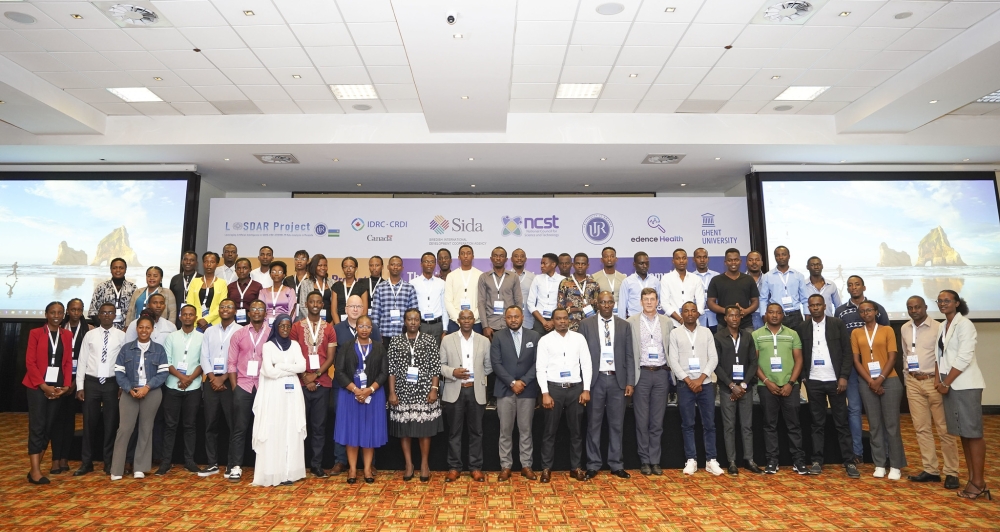

A two-day workshop was inaugurated on Thursday June 15, aimed at showcasing the achievements of two groundbreaking projects that have harnessed artificial intelligence (AI) and data science techniques to harmonize, access, and analyze SARS-CoV-2/COVID-19 data in Rwanda.
Hosted by the University of Rwanda, the workshop also evaluated the final project reports.
The projects, namely the Leveraging Artificial Intelligence and Data Science Techniques in Harmonizing, Accessing and Analyzing SARS-CoV-2/COVID-19 Data in Rwanda (LAISDAR) Project and the Longitudinal datasets hub for predicting and monitoring COVID-19 evolution in the community and mitigation measures outcomes in Rwanda (PREDICT) Project, have been at the forefront of driving innovative research in the fight against the pandemic. The completion period for both projects is June 30.
ALSO READ: UR committed to leveraging data science to impact community
Dr. Marc Twagirumukiza, the project promoter and a professor at the University of Gent in Belgium, emphasized the importance of continued research efforts despite COVID-19 no longer being considered a global emergency.
He said, "Even though COVID-19 is no longer a global emergency, it doesn&039;t mean it is completely gone. Over the years, viruses and infections have gone and come back. This research will prove valuable for centuries to come."


Twagirumukiza further revealed that the Ministry of Health is keen to apply AI research techniques to combat other diseases such as malaria and hypertension. By utilizing data-driven research, the ministry aims to partner and develop strategies for eradicating these diseases as well.
ALSO READ: University of Rwanda launches incubator project to promote AI
Highlighting the impact of the projects, Dr. Raymond Ndikumana, Deputy-Vice Chancellor for Strategic Planning and Administration at the University of Rwanda, expressed the university&039;s commitment to incorporating AI into research endeavors.
He underscored the significance of AI in computing large datasets, stating, "The government institutions, policymakers, and researchers were initially encouraging all initiatives to increase data, and they were pushing for more data analysis to know more about the real Covid-19 situations and the trends. There was a need for accurate data on the prevalence, incidence, and evolution of the disease. Strategies to prevent and control Covid-19 and mitigate its effects had been initiated at different levels in Rwanda."
During the workshop, Ndikumana emphasized the significance of data collected by encouraging the students to leverage the valuable data gathered to contribute to the advancement of knowledge and address pressing challenges.
Recognizing the immense potential of data-driven research, he urged the students to harness their findings and insights to make meaningful contributions in their respective fields.
ALSO READ: University of Rwanda starts Masters, PhD programmes in biotech


